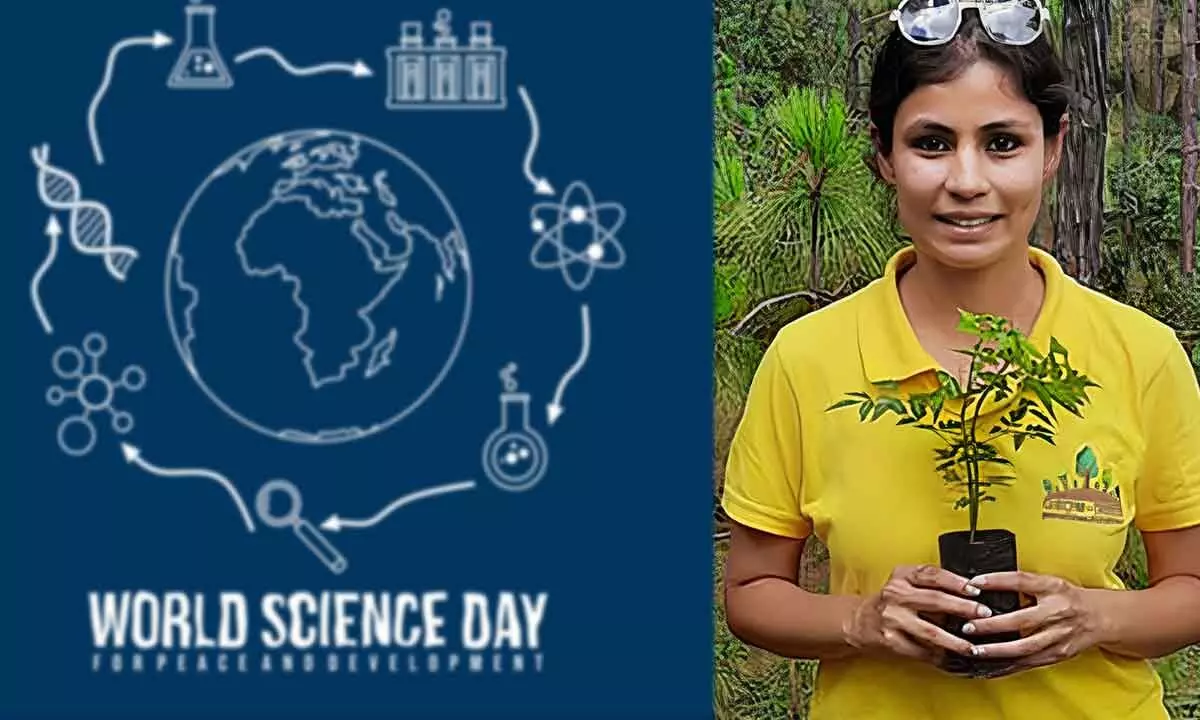Environmental protection through sustainable scientific techniques

On this day, SupriyaPatil, environmentalist Grow-Trees.com discussed "The need forenvironmental protection through scientific techniques that aresustainable"
The World Science Day for Peace and Development, celebrated on November10 every year, was established by UNESCO in 2001 to highlight the critical roleof science in society and the need to involve people in discussions of emergingand essential contemporary science-related issues. This year's World ScienceDay for Peace and Development theme is Basic Sciences for SustainableDevelopment.
On this day, Supriya Patil, environmentalist Grow-Trees.comdiscussed "The need forenvironmental protection through scientific techniques that aresustainable"Supriya Patil, the environmentalist atGrow-Trees.com, helps corporates to mobilize the resources for adopting thetriple bottom line in their businesses by developing various socialimpact-driven projects. In her free time, she likes to visit varioussanctuaries in India, travel to unexplored places and spend time with her pets.
Environmental protection constitutes programs andtechniques that address pollution prevention measures and are aimed at reducingenvironmental risks from hazardous materials such as wastes, fuels, andoils. To achieve long-term growth that benefits both the present andfuture generations, sustainable development must focus on environmental,social, and economic goals.
Climate change, pollution and waste, and depletion of habitats impactsflooding, displacement, food and water scarcity, loss of biodiversity, healthand well-being, and cost of resources. Today, we live in a world wheresustainability has to be our way of life. Encouraging sustainable developmentin government and business sectors as well as stimulating the green economy bysupporting the green goods and services sector, will not only bring aboutenvironmental protection but also strengthen the co-existence of human and environmentalwell-being. Science has unquestionably improved our lives overtime and contributed significantly to improvements in our health and theenvironment. The development we have achieved, though, is predicated on alinear economic paradigm. This growth paradigm has also brought us to theclimatic crisis we face today. So, while science has improved health,well-being, and societies, it has also caused significant harm to the health ofthis planet and its people. Though science has given us a lot, it can offermuch more through sustainable scientific methods. The 2015 United Nations Climate Change Conference confirmed the importance offighting against climate change through technology and a circular economy.Besides improving the efficiency of liner production processes, a circulareconomy aims to reuse materials that are otherwise considered waste. Theprimary objective of this model is to produce goods and services while reducing raw materials, water, energy consumption,and waste. The bioeconomy is a crucial component of this. It produces goods,services, or energy using biotechnology and biomass. Crops that have been altered to be drought and flood resistant are anincredible example of biotechnology in practice. Among the technologies thatcan save the environment, green cars and biofuels also play a crucial role. Theterm 'green cars' is restricted to electric vehicles and includes cars that consume less to travel the samedistance, hybrid vehicles, and many others. Furthermore, renewable energy isemerging as a crucial pillar of development even as we continue to look foralternatives to conventional transportation to lessen our dependence on oil andother fossil fuels. This includes biofuels, a fuel substitute derived from thebiomass of living organisms or their metabolic waste. Current research focuseson identifying novel uses for crop waste, such as sugar cane or maize, topromote the circular economy.
Innovative technologies like bioremediation can be utilised to clean upoil-contaminated regions. This technique employs bacteria or fungi to purifysewage from cities. To lessen the greenhouse impact and global warming, we canalso use biomaterials to store carbon dioxide in place of regular materials.
The preservation of the environment depends onscientific and technical advancement. Despite being important for mitigatingthe effects of global warming, aiding in climate change adaptation, cleaning uppolluted areas, and protecting our own health, science is obscure to manypeople. We need to work on improving the accessibility and understanding ofscience. We need to counteract disinformation with science that is simpler tounderstand if we want more people to become familiar with its wonders and howit is being utilized to restore the health of our environment. People need tounderstand why it's imperative to move towards a circular economy so that theycan make changes on a personal level as well. Science can help us co-exist withnature; let's make sure we use this power constructively.

